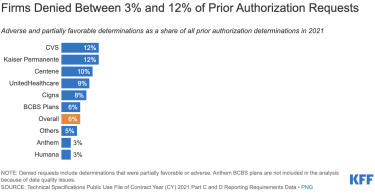On one hand, “Medigap,” health insurance coverage that supplements traditional...
Medicare
Don’t rely on Mark Cuban’s Cost Plus Drugs for the...
I promoted Mark Cuban’s Cost Plus Drugs a while back as a way to get low-cost generics. As it...
Pharmacy Benefits Managers continue to drive up costs
Most people likely do not even know what a Pharmacy Benefit Manager (PBM) is. PBMs allegedly add...
People with Medicare are less likely to get dental care
Only about half of older adults in the US have health insurance that covers dental care, according...
Medicare Advantage plans denied two million prior authorization...
Imagine that you were given a wad of cash to deliver a service when necessary. And, it was in your...
Medicare patients with liver cancer face $10,000 in...
Even with Medicare, out-of-pocket costs for people with liver cancer can be unaffordable. A recent...
Case study: Costco saves one couple hundreds of dollars over...
If you ask me, often the smartest way to save money on prescription drugs is to import them from...
Poll: Many more older adults delayed care because of cost in 2022
Nearly four in ten Americans reported that they or a family member delayed health care last year...
Case study: Medicare Advantage delays, denials and consequences
Rick Timmins, a retiree in Washington State, reports the delays and denials he has faced trying to...
Shortage of home health aides undermines people’s ability...
Since the Covid-19 pandemic, it has become increasingly hard for people to get the care they need...










